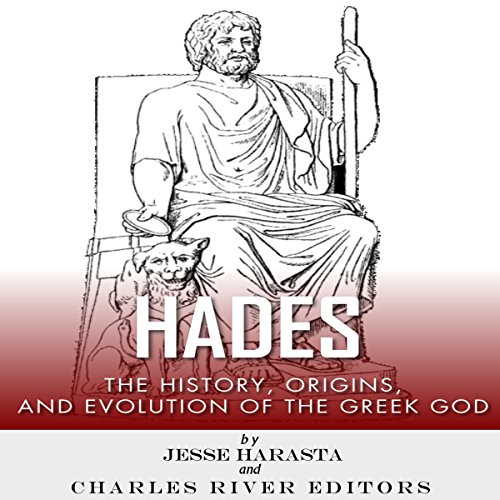
Hades: The History, Origins and Evolution of the Greek God
Échec de l'ajout au panier.
Échec de l'ajout à la liste d'envies.
Échec de la suppression de la liste d’envies.
Échec du suivi du balado
Ne plus suivre le balado a échoué
0,99 $/mois pendant vos 3 premiers mois
Acheter pour 8,71 $
-
Narrateur(s):
-
Michael Gilboe
-
Auteur(s):
-
Charles River Editors
-
Jesse Harasta
À propos de cet audio
"The gloomy Hades enriches himself with our sighs and our tears!" - Sophocles
The Greek god Hades is something of an enigma. On the one hand, people can view him through a lens that was a byproduct of the Christian tradition: as a terrifying lord of death seated upon his ebony throne, an unseen force of power moving through the world. Certainly, many of the ancient Greeks themselves saw the god in this light. They whispered his name and made sacrifices of black sheep on dark nights, allowing the blood to trickle down into the earth to reach the underworld. On the other hand, there is a parallel Greek tradition that depicts Hades as a regal god and more of a dark parallel to his brother Zeus, who bears the same icons of sovereignty and may have some deep link to him in a primordial sense.
The name "Hades" literally means "unseen", but the Greeks had a superstitious fear of calling Hades by his proper name and thus created numerous ways of referring to the god. For instance, "Euboleus" means "giver of good counsel" and "Polydectes" means "he who receives many". "Stygeros" means "hateful one". "Polydegmons" means either "grey man" or "hospitable one". The most popular name was "Plouton" which means "wealth-giver". It referred to Hades' role in guarding the treasures of the earth. That name was eventually adopted and altered by the Romans to become their god "Pluto". Other names used for the god included Aidoneus, Ais, Clymenus, and Pylartes.
©2012 Charles River Editors (P)2015 Charles River Editors

